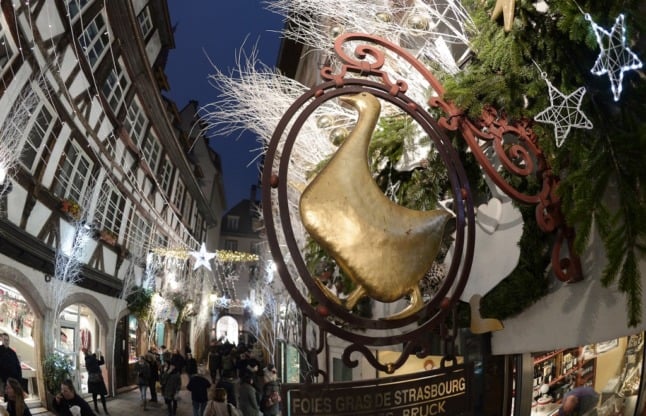The Green mayor of Strasbourg Jeanne Barseghian used her discretionary powers to remove foie gras from the menu of official events ‘in the name of animal welfare’ soon after she took office in 2020.
But her decision was not made public – and had gone unnoticed – until an article published in Dernières Nouvelles d’Alsace, a day before the city’s famous Christmas market was due to open to the public.
Until then, “foie gras [had been] served sparingly, on canapés or sometimes as an appetiser at dinners,” according to officials at Strasbourg’s city hall.
The article was published after international animal welfare group Peta had sent the mayor a gift of a basket of ‘faux gras’ to thank her for her stance, and to mark World Day Against Foie Gras, after she had revealed her decision in a reply to an earlier letter.
But the news dismayed local producers, who point out that Strasbourg was known as ‘the capital of foie gras’ in the 19th century.
“This is a somewhat surprising announcement, one day before the opening of the Christmas Market. Our association has stands there,” the president of the foie gras producers of Alsace – a group of about a dozen farmers – who raise ducks and geese for processing told Le Figaro.
The news “tarnishes the image of Alsatian foie gras, a product renowned throughout France,” he said.
“Is she going to take down the Gänseliesel in the Parc de l’Orangerie?” he added, referring to the statue sculpted in 1898 of the young girl leading a flock of geese which references the practice.
“Are we going to eliminate all animal products, meat and fish, from official tables? Is it normal for the mayor of Strasbourg to impose a personal choice?” another producer, a fifth-generation farmer, asked.
The farmers have the backing of regional politicians.
“Goose foie gras is a local product, the tradition is linked to Christmas and Advent,” said Grand-Est regional President Jean Rottner.
More usually associated with the south west of France, foie gras has long been controversial because of the methods of production, which involves force-feeding ducks or geese until the develop the distinctive ‘fatty’ liver.



 Please whitelist us to continue reading.
Please whitelist us to continue reading.
Food production should never involve the torture of animals. Why is the EU and their ‘lauded standards’ ok with this ?
Foie gras with a fine Sauternes with friends is what life is all about.
A pretty sad little life perhaps